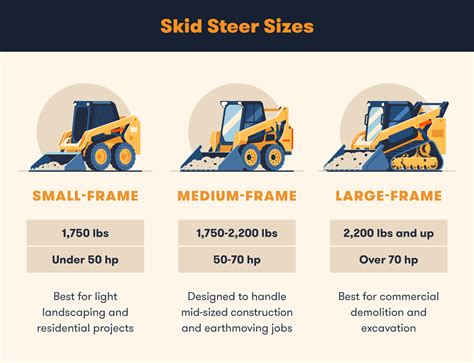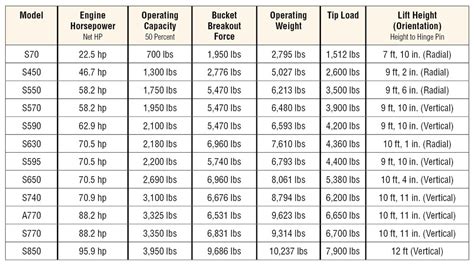what is operating capacity on a skid steer Compare the rated operating capacity, operating weight, engine power, lift height, length, and width of different skid steer models from various brands. Find the best skid steer .
Convenient 304 MINI HYDRAULIC EXCAVATOR parts packages for common maintenance and repairs. Purchase all the necessary parts and tools to service your machine!
0 · track skid steer comparison chart
1 · skid steer weight chart
2 · skid steer track size chart
3 · skid steer size chart
4 · skid steer lifting capacity chart
5 · skid steer comparison chart
6 · bobcat skid steer size chart
7 · bobcat skid steer comparison chart
Hitachi ZX35U-2 Mini Excavator. Imperial Metric. Units. Dimensions. Boom/Stick Option (Hex) 1 . A Shipping Length Of Unit. 15.26 ft in. I Max Cutting Height. 16.08 ft in. C Shipping Height Of Unit. . OEM specifications are provided for base units. Actual equipment may vary with options. .
On wheeled skid steers operating capacity is 50% of the tipping load. On tracked skid steers the operating capacity is 35% of the tipping load. The tipping load is measured at . Learn how to calculate and compare the rated operating capacity (ROC) of skid steer loaders, which is the maximum weight they can safely lift. Find out how ROC, tipping .
Rated Operating Capacity Rated operating capacity (ROC) is a stability measurement by which skid-steer loaders are rated and compared. ROC is calculated as 50% .

The lift capacity — otherwise known as the rated operating capacity (ROC) — varies by the specific type of skid steer. Generally, skid steers can lift between 1,250 and .Learn how to calculate the rated operating capacity (ROC) and tipping load of skid steer loaders based on their size, model, and attachment. Find out the factors that affect the ROC, such as .
Compare the rated operating capacity, operating weight, engine power, lift height, length, and width of different skid steer models from various brands. Find the best skid steer .Skid steer load capacity is measured in Rated Operating Capacity (ROC). This is the maximum safe weight a skid steer can lift at a specific lift height and with a level machine. It’s important .
track skid steer comparison chart
A skid steer’s rated operating capacity is how much load, or weight, it can carry without reaching its tipping point or causing dangerous load malfunctions. In simpler terms, it’s how much a skid .

The right attachment can greatly expand a skid steer's capabilities. However, not all attachments are compatible with every skid steer. The compatibility depends on factors such . The sweet spot is a machine that fits where you need it to go and has enough horsepower and rated operating capacity (ROC) for the weight you plan to lift. The ROC, or the skid steer lift capacity, is half of the tipping load. Skid steer ROCs range from around 700 pounds to more than 3,000 pounds.
On wheeled skid steers operating capacity is 50% of the tipping load. On tracked skid steers the operating capacity is 35% of the tipping load. The tipping load is measured at whatever height the loader reaches the farthest from the front axle.
Learn how to calculate and compare the rated operating capacity (ROC) of skid steer loaders, which is the maximum weight they can safely lift. Find out how ROC, tipping load, hydraulic flow, and attachment types influence the performance and suitability of .
skid steer weight chart
Rated Operating Capacity Rated operating capacity (ROC) is a stability measurement by which skid-steer loaders are rated and compared. ROC is calculated as 50% of the machine’s tipping load. The tipping load is the amount of weight that would lift the rear tires when applied to the bucket at the machine’s maximum reach-point in the lift cycle.
The lift capacity — otherwise known as the rated operating capacity (ROC) — varies by the specific type of skid steer. Generally, skid steers can lift between 1,250 and 4,200 pounds, depending on the skid steer size, make, and model.Learn how to calculate the rated operating capacity (ROC) and tipping load of skid steer loaders based on their size, model, and attachment. Find out the factors that affect the ROC, such as terrain, tracks, and lift type.
Compare the rated operating capacity, operating weight, engine power, lift height, length, and width of different skid steer models from various brands. Find the best skid steer for your project with this comprehensive guide and chart.Skid steer load capacity is measured in Rated Operating Capacity (ROC). This is the maximum safe weight a skid steer can lift at a specific lift height and with a level machine. It’s important to remember that ROC is not the same as the skid steer’s overall weight.
A skid steer’s rated operating capacity is how much load, or weight, it can carry without reaching its tipping point or causing dangerous load malfunctions. In simpler terms, it’s how much a skid steer can lift. The right attachment can greatly expand a skid steer's capabilities. However, not all attachments are compatible with every skid steer. The compatibility depends on factors such as horsepower, rated operating capacity (ROC), and hydraulic system type. Here are some guidelines to consider:
The sweet spot is a machine that fits where you need it to go and has enough horsepower and rated operating capacity (ROC) for the weight you plan to lift. The ROC, or the skid steer lift capacity, is half of the tipping load. Skid steer ROCs range from around 700 pounds to more than 3,000 pounds. On wheeled skid steers operating capacity is 50% of the tipping load. On tracked skid steers the operating capacity is 35% of the tipping load. The tipping load is measured at whatever height the loader reaches the farthest from the front axle. Learn how to calculate and compare the rated operating capacity (ROC) of skid steer loaders, which is the maximum weight they can safely lift. Find out how ROC, tipping load, hydraulic flow, and attachment types influence the performance and suitability of . Rated Operating Capacity Rated operating capacity (ROC) is a stability measurement by which skid-steer loaders are rated and compared. ROC is calculated as 50% of the machine’s tipping load. The tipping load is the amount of weight that would lift the rear tires when applied to the bucket at the machine’s maximum reach-point in the lift cycle.
skid steer track size chart
The lift capacity — otherwise known as the rated operating capacity (ROC) — varies by the specific type of skid steer. Generally, skid steers can lift between 1,250 and 4,200 pounds, depending on the skid steer size, make, and model.Learn how to calculate the rated operating capacity (ROC) and tipping load of skid steer loaders based on their size, model, and attachment. Find out the factors that affect the ROC, such as terrain, tracks, and lift type.

Compare the rated operating capacity, operating weight, engine power, lift height, length, and width of different skid steer models from various brands. Find the best skid steer for your project with this comprehensive guide and chart.Skid steer load capacity is measured in Rated Operating Capacity (ROC). This is the maximum safe weight a skid steer can lift at a specific lift height and with a level machine. It’s important to remember that ROC is not the same as the skid steer’s overall weight.A skid steer’s rated operating capacity is how much load, or weight, it can carry without reaching its tipping point or causing dangerous load malfunctions. In simpler terms, it’s how much a skid steer can lift.
kubota svl 90 skid steer for sale
mustang skid steer for sale in wisconsin
Learn the crucial methods to maintain hydraulic oil in mini excavators for optimal performance and longevity. Discover the key steps to ensure a clean hydraulic system, enhance oil.
what is operating capacity on a skid steer|skid steer comparison chart